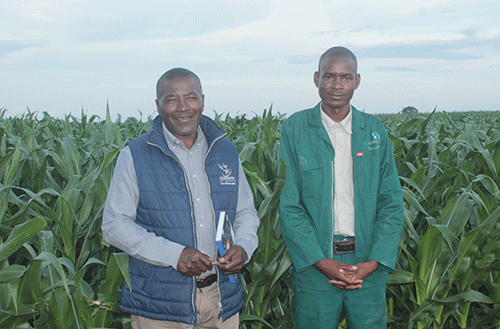RUNDU – Kavango East– once thought of as Namibia’s bread basket – is home to over 300 small-scale farmers, contributing to the country’s food security agenda. Most of the small-scale farmers are operating at the government irrigation projects in the region. Regional governor Bonifatius Wakudumo made the remarks on Thursday during the national agronomy and horticulture awards (NAHA) held at Mashare irrigation project.
“The Kavango East region is home to over 300 small-scale farmers mostly specialising in the production of controlled agronomic and horticultural crops like white maize, pearl millet [mahangu], green pepper, tomatoes and leafy vegetables,” Wakudumo said. The region is also home to some of the most productive government green schemes. In the Mukwe constituency for example, there is Shadikongoro irrigation scheme and Divundu Correctional Service irrigation scheme, while Shitemo government irrigation schemes is found in Ndonga Linena. Meanwhile, Uvunguvungu irrigation project in Rundu Rural constituency is in production using water from the Kavango River.
“This year has witnessed a notable increase in production when compared to the performance of the preceding three years. For this reason, 17% of the locally harvested white maize grain in Namibia is from the two Kavango regions. Although we can agree that this percentage does not reflect the full potential of the regions, it is a stride in the right direction,’
the governor said. “I am overwhelmed with pride to show all of you present here, the potential that our region has and the opportunities to yet be explored through investment opportunities that will improve the socioeconomic status of our communities through employment opportunities, capacity building and upscaling production,’’ the governor brimmed with confidence. Wakudumo furthermore added that good production is possible when industry stakeholders work together, forming synergies and partnerships aimed at improving food security and sustainability. “The Mashare irrigation project symbol i ses the dedication and innovation of our local farmers. It is a testament to what can be achieved when we invest in agricultural practices that are not
only profitable but also socially
accepted by the community and
environmentally sustainable,”
he said.
– jmuyamba@nepc.com.na



